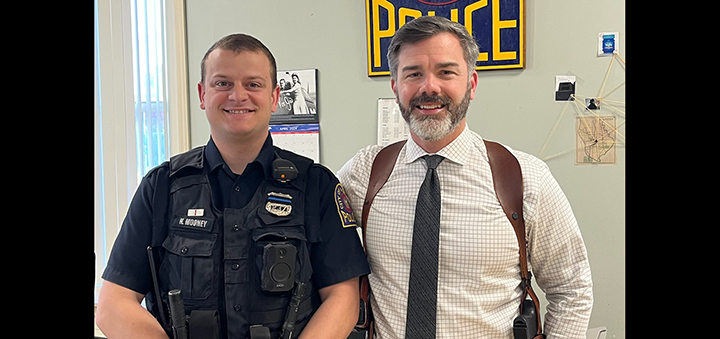My Mostly Happy Life: Autobiography Of A Climbing Tree
Published:
June 2nd, 2017
By Shelly Reuben
Chapter 9 - The Birdcage, the Trowel, and the Moroccan Magic Box
Sam Swerling and his granddaughter were often in the park at the same time as Meg Fitzgerald and her mother, but their paths had never crossed. At least, not until that Friday morning. It was a school day, but it was also Esther’s birthday, and she had begged her parents to let her celebrate in her own, special way.
“How?” They asked.
“I want to spend the day with Grandpa in the park.”
And because Esther was such a good girl and rarely asked for anything, both parents agreed. It was late spring. The weather was dry and hot, and the sky was a cloudless forget-me not blue. Some of the colorful flowers that had populated the park in March and April were gone, but there were huge patches of iris, lupine, foxglove, and lilies, and the lilacs were in full bloom.
After Sam and his granddaughter arrived at the park, their first stop was to visit me. As usual, they settled upon the lowest branch on the north side of my trunk. But this time, they did not play the “What are they saying now” game. Esther’s mother, Donna, had told Sam that Esther’s school grades were somewhere south of acceptable.
“Please talk to her, Dad,” she pleaded. “Esther will do anything you say.”
So, Sam asked his granddaughter, “What do you want to be when you grow up?”
And Esther had answered, “I want to be you, Grandpa.”
The old man nodded ever so slightly and whispered under his breath, “That’s what I was afraid of.” Out loud, though, he said, “I understand from your beautiful mother, that as a student, you are exhibiting the intellectual prowess of moss growing on the wrong side of a tree.”
Esther inhaled deeply. Then, as though expelling all of the worries of the world with a single sigh, she admitted, “I guess I’m pretty awful.”
“Did you flunk any subjects?”
“Not actually flunk.”
“Did you get any ‘A’s?”
She shook her head, but added, “My favorite teacher says that I’m an ‘indifferent student,’ but that I have a wonderful imagination.”
Sam considered this for a moment and asked, “Is that a tangentially less offensive way of suggesting that you’re lazy?”
Esther studied her nails. On each, she had pasted a decal of a tiny rocket ship.
“Well, Grandpa,” she finally looked up, “I’m not lazy if you consider what I actually do. But I guess I am lazy if you ask what I’m supposed to be doing.”
Sam said unsympathetically, “And what might that be?”
Esther grimaced, and then admitted, “Homework.”
“What are you are doing instead of homework?”
Esther grinned. “I do what you do, Grandpa. I invent things.”
But before he could ask the next logical question, which would have been, “What kinds of things do you invent?” their attention was drawn to a soft whimper of repressed sobs and the sad sight of a girl about the same age as Esther. She was stumbling along the path not far from where Sam and his granddaughter were perched upon my branch.
Sam put a finger to his lips.
“Shush,” he whispered, and he slid to the ground. He motioned for Esther to do the same, and very quietly they trailed behind the weeping child into the depths of the park.
Meg Fitzgerald, for that is who the girl was, walked unsteadily, because tears impaired her vision and because she was carrying the awkward bulk of a small white birdcage containing a metal trowel and a Moroccan magic box. Despite her sobs and the circuitous route of the park’s inner paths, she proceeded unerringly in the direction of the Children’s Garden.
She entered through a canopy of trumpet vines, continued around the lily pond, and did not stop until she had reached a flowerbed in front of one particular plaque embedded in the garden’s brick wall.
I expect that by now you have figured out that it was the plaque bearing the quotation from Ethan’s Best Friend.
Meg stepped over the scalloped stone border between the flowerbed and the path, and wove in and out between clumps of delphinium and iris, careful not to bruise a single flower; she stopped when she arrived at the flower bed at the base of the wall. Meg placed her birdcage on the ground; she removed the trowel from the cage, and knelt. When she looked up, a fresh batch of tears streamed from her eyes as she read aloud:
Twix man and bird in such a way,
Did love and friendship save the day.
Then she looked down again, and slowly … meticulously, she began to dig into the earth.
The Children’s Garden is about twice the size of a tennis court, but completely round. The six feet high brick wall that surrounds it forms a perimeter for ten flowerbeds that radiate from the lily pond like pieces of a pie. Small stone benches border the pond so that visitors can gaze either at the flowers or at the water lilies, depending upon what strikes their fancy.
Along with the poets I mentioned earlier, others honored in the Children’s Garden include Sir Walter Scott, Bret Harte, Percy Bysshe Shelley, William Wordsworth, Henry Carrey, and John Masefield.
All in all, the garden hosts ten poets, ten poems, and ten plaques.
After following Meg into the garden, Mr. Swerling and Esther stood just inside the entrance. They had a clear view of Meg digging in the dirt, but were hidden from her sight by a veil of exuberant trumpet vines.
So intent were they in their observations that they did not notice the boy who had also followed Meg inside.
At least, they did not notice him at first.
But as he strode past the pond, Esther leaned toward Sam, pointed at the intruder, and uttered, “Grandpa.”
He put a restraining hand on her arm and whispered, “Shush. Walk behind me. Don’t make a sound.”
The boy in question was the same one who, three months earlier, had deliberately knocked an ice cream cone out of a small child’s hands. I am, of course, referring to twelve-year-old Jarvis Larchmont. Sam and Esther were seeing him for the first time, but I had been privy to his antics on several previous occasions.
Each time, he was alone.
Each time, he moved quickly.
Each time, he was sly and secretive.
Each time, he did something cruel.
One incident in particular stands out in my mind. On a Saturday morning in May, mere seconds before a young man and woman, arm in arm, were about to stroll by, Jarvis Larchmont positioned himself on a bench in their path. Just as they came abreast of him, Jarvis stuck out a foot. The man tripped and fell forward; the woman instinctively reached out a hand to stop him, but she got caught up in his downward momentum, and she fell, too.
With a gleam of malice in his pale green eyes, Jarvis leaped to his feet, grabbed the hand of the capsized man, and said, “Here. Let me help you up. You tripped over one of the uneven bricks in the path.”
The woman stood and straightened her dress.
The man eyed Jarvis suspiciously, and shrugged off his hand.
“Gross negligence,” the malevolent boy continued arrogantly. “If I were you, I would sue the owners of this park.”
Then in, a gesture that probably meant something to him but looked foolish to me, Jarvis, jerked up his chin and strode away.
This was one of many such occasions.
Other times, I saw Jarvis intercept Frisbees thrown among playmates and hide them in bushes; run past troops of Cub scouts and steal their caps; stomp on flowerbeds; take trash out of wastebaskets and toss it on the grass; unleash dogs tied to fences and re-tie their leashes on the other side of the park, so that the owners would think their dogs had run away. And more.
For months, I had been hoping that either Mr. Swerling or Alonso Hannah would catch Jarvis in the act.
But no such luck
Until the day that Meg came to bury Princess at the base of the brick wall holding a plaque which honored a brave beloved cockatiel named Pal.
Copyright © 2017, Shelly Reuben
Shelly Reuben’s books have been nominated for Edgar, Prometheus, and Falcon awards. For more about her work, visit www.shellyreuben.com.
Comments





